Have you tuned your television/web browser to C-SPAN2 yet? If not, you’re going to miss all the excitement: today, the Senate Finance Committee holds confirmation hearings on Michael Froman as the new United States Trade Representative!
What do you mean “snooz-orama”?!?! If you’re a regular reader of the State of Trade blog, as I’m sure you are, you are probably a trade policy nerd (no offense…some of my best friends are trade policy nerds). This is an exciting time in trade policy…not quite the equivalent of trade policy nerd Christmas, but at least something like trade policy nerd Arbor Day.
The point being that the next USTR will be responsible for negotiating some of the most expansive and complex trade agreements the U.S. has ever considered, and so soon-to-be-Ambassador Froman is about to step into a pretty important role.
During the confirmation hearings, Senate Finance Committee members have the opportunity to ask questions that will guide Froman’s priorities in the next few years, and so let’s use this time to pretend that we’re all Senators (it’s nice to daydream sometimes!). Here are a few questions I’d pose (which co-incidentally align with many of WCIT’s policy priorities):
1. How would you work with Congress to quickly pass Trade Promotion Authority (TPA)?
An important step to successfully passing all these proposed new free trade agreements is granting the President fast track authority to negotiate these agreements. Trade Promotion Authority (TPA) provides U.S. trade negotiators with clear direction as to the priorities that Congress and the President require for our country’s trade agreements, which then allows for Congress to quickly pass trade agreements that meet those negotiating objectives. The new USTR will work closely with Congress to create effective TPA legislation, so Froman must understand its importance and make it one of his top priorities. TPA is particularly important for Washington state; since Washington’s goods exports per capita are more than twice as much as the average state and 40 percent of our jobs are tied to trade, increased trade liberalization benefits our state significantly. Without TPA, it’s very likely that trade agreements which would benefit of local employers will stall in Congress due to proposed amendments and extended debate.
2. How will you successfully conclude negotiations on TPP, TTIP and TISA?
It’s no secret that there is a lot going on in trade policy this year, with the U.S. involved in talks for three major trade agreements that have the potential to take trade liberalization in both goods and services to unprecedented levels. These negotiations are an opportunity for the U.S. to be a leader and demonstrate to the world our commitment to free and fair trade. However, these new trade agreements are complex, presenting a host of challenges that will have to be carefully resolved. Our new USTR must stay focused and determined to conclude these agreements, or we could miss out on some enormous opportunities that could open doors for Washington companies in new international markets and remove costly trade barriers. Lower import barriers also help hundreds of Washington retail or manufacturing companies that rely on global supply chains to provide high quality, low-cost goods to consumers. Speaking of imports, it’s important that Froman understand point number three below:
3. Do you understand that trade = exports and imports?
We often hear our President extol exports and accuse companies that leverage global supply chains of sending jobs overseas. This presents a distorted view of trade to the American public, and strengthens the erroneous idea that exports are good and imports are bad. Trade involves both exports and imports, and both work together in growing our economy. In many cases, Washington companies can successfully export because they import or leverage global supply chains to stay competitive. It is imperative that Froman understand that trade liberalization includes opening new markets to American products and services as well as opening our market to free flows of goods and services from other countries.
4. How will you address trade barriers in China that are affecting U.S. companies?
Many issues in China pose a threat to U.S. companies, from weak cybersecurity and IP theft to currency manipulation and distorting government subsidies. In fact, President Obama is meeting with Chinese President Xi Jinping tomorrow to discuss many of these issues, with cybersecurity threats at the top of the agenda. Since China is one of the United States’ top trading partners and will be the world’s largest economy by 2030, China relations must be a top priority for the new USTR. It will not be possible for him to engage in constructive dialogue to resolve critical and sensitive issues without an in-depth knowledge of the Chinese business environment, government and culture. Since China is Washington state’s largest trading partner, accounting for 19 percent of our goods exports and 18 percent of our imports, China relations are particularly important to our state. While we need to mitigate the risks posed by doing business in China (Washington IT & software companies lose billons a year on IP theft!), we want to be careful not to jeopardize the strong relationship our state has built with China.
So there you have it, WCIT’s (I mean, Senator WCIT’s) questions/assignments for our new USTR. And we look forward to working with him – and all of you – to help move them forward!

